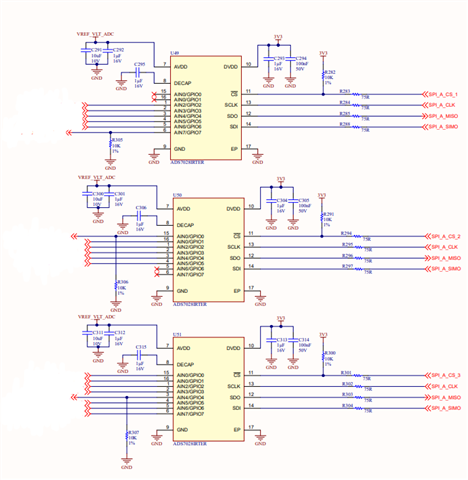Other Parts Discussed in Thread: TMS320F28377D
Tool/software:
Hello,
We are trying to use ADS7028 sensors for ADC readings in our project. But we are having issues with the communication. In short, we can't seem to write anything to the registers of the ADS7028 and when we read back the register contents of the same register for debugging, the content constantly keeps changing. This can be seen from the attached pictures.
In these pictures, a register read command is sent for the SYSTEM STATUS REGISTER. But as it can be seen from the picture, the data received from the ADS7028 changes for each message.
Orange: Data from ADS7028
Blue: Chip Select
Yellow: SCLK
Green: Data from MCU
We are really stuck, so any help is appreciated.
Thanks, regards.


